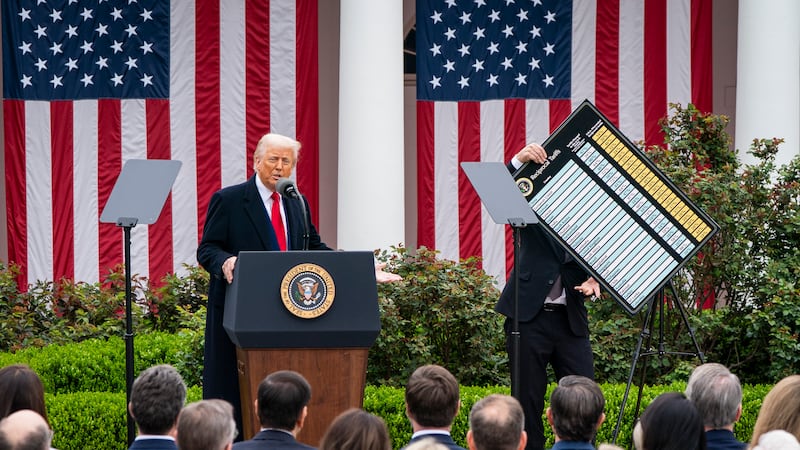Technology stocks led sharp losses on Wall Street for the second straight session as a sell-off in the sector spread out across global markets and wiped out the Nasdaq Composite’s gains for 2018.
Growing investor angst over the industry’s prospects raised questions about whether the decade-long bull run for equities, led by the household names of US tech, was beginning to reverse.
A combination of worries over demand for Apple's signature iPhone and signs that chipmakers could be drawn into the next round of the trade dispute between China and the US have fuelled investor concerns.
The Nasdaq Composite fell 2.4 per cent in opening trade, enough to wipe out its gains for 2018 after a slide of more than 3 per cent on Monday.
Apple was down another 4 per cent on Tuesday putting it on track for its worst month in 10 years. The fresh loss matched the decline made over the previous session, which followed reports it had cut production orders for all three new iPhones rolled out in September.
Demand weakness
Goldman Sachs cut its price target on Apple’s stock to $182, down from $209, citing “severe Chinese demand weakness in late summer and a stronger dollar”.
In a note written by analyst Rod Hall, the bank said: “The market now points to Apple being at the limit of their price premium for the iPhone. In our experience with mobile phones, when pricing power is lost, consumer technology companies tend to either lose margins or market share or both.”
Semiconductor stocks were unsettled by antitrust accusations from Chinese authorities against major chipmakers, helping spread the sell-off from the so-called Faang stocks – the fast-growing technology groups Facebook, Apple, Amazon, Netflix and Google's parent company Alphabet.
By the end of Monday, all of the Faangs were in a bear market territory, meaning they had fallen at least 20 per cent from their peak. Shares in each of them were down by between 1.5 per cent and 5.3 per cent at Tuesday’s open.
After a stunning rally that saw the market value of Amazon and Apple surpass the $1 trillion mark earlier this year, investors have been leaving a trade that was widely seen as one of the most crowded on Wall Street.
‘Long in the tooth’
“The most high-valued assets tend to be the most sensitive to fears of a global macro regime change and the fear is that the US tech-led rally is looking long in the tooth,” said Koon Chow, strategist at UBP.
“Growing cynicism about the talks between presidents Trump and Xi are contributing to the tech rout inasmuch as intellectual property and innovation is the most thorny dispute between US and China.”
Apple suppliers were hit worldwide on Tuesday. Chipmaker ASML was down over 4 per cent in Amsterdam, while ST Micro fell 3.5 per cent. Japan Display was down more than 10 per cent.
The Europe-wide Stoxx 600 tech index traded around its lowest point since February 2017, down by over 1 per cent. The gauge has tumbled more than 15 per cent over the fourth quarter of the year, the worst such fall for more than seven years.
Selling pressure
The Philadelphia SE Semiconductor index fell by 1.3 per cent, compounding Monday’s 3.9 per cent fall. The S&P 500 fell 1.2 per cent.
Overall selling pressure stayed on European bourses, with the international Stoxx 600 down 1 per cent and Frankfurt’s Xetra Dax 30 down 1.5 per cent. London’s FTSE 100 fell 0.8 per cent.
Wider Asian indices also fell, with mainland China’s CSI 300 down 2.3 per cent and Hong Kong’s Hang Seng weaker by 2 per cent. Seoul’s Kospi lost 0.9 per cent. – Copyright The Financial Times Limited 2018













